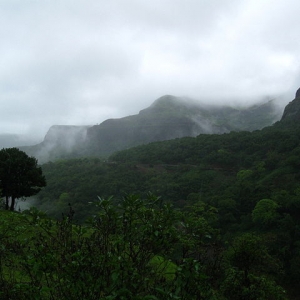The Stream, October 8, 2021: Colorado River Basin Tribes Could Lose More Water As Lake Mead Levels Shrink
YOUR GLOBAL RUNDOWN
- In the American West, Los Angeles begins receiving water from the Colorado River and Colorado River basin tribes could lose more of their already dwindling water supplies.
- A major storm water retention project in Detroit, Michigan includes removing tons of soil from a local park.
- The impacts of climate change globally could reduce India’s GDP significantly.
- Turkey becomes the last G20 country to ratify the Paris climate agreement.
A major water infrastructure project in Vancouver, Canada will cost more than $1 billion.
“We knew it was going to cost. We thought we had a good project plan in place and clearly we didn’t.” — Alexa Loo, a member of Metro Vancouver’s liquid waste committee. A massive water treatment plant in North Vancouver, Canada will cost more than $1 billion after the city said the contractor “abandoned” the project, CBC reports. The Metro Vancouver area budgeted $6 billion in capital spending in the next five years for several water projects, including the expansion of the water treatment plant and water lines, as well as more than a billion dollars for wastewater treatment projects in northwest Langley.
IN RECENT WATER NEWS
In Case You Missed It:
Water Groups Lauded A Side Agreement at the Paris Climate Conference. Then It Languished. – The fate of the Paris Pact reveals the difficulties in incorporating water into global climate agreements.
HotSpots H2O: Years-Long Drought Pushes Brazil to the Brink – The country’s worst drought in nearly a century is choking commerce, threatening ecosystems, and diminishing hydroelectric power generation.
Drought in the American West
Your need-to-know drought coverage for the week.
Los Angeles Receiving Emergency Water From Colorado River Amid Drought
The city of Los Angeles has begun receiving water from the Colorado River as water supplies continue to dwindle. While most of Southern California relies on Colorado River water, some parts of the region, including northwestern L.A. County, don’t have access to the river’s water and depend on the State Water Project for supplies, according to the Los Angeles Times. In an announcement Tuesday, Los Angeles Mayor Eric Garcetti said the city’s Department of Water is taking less water from the State Water Project in order for more affected areas to receive the precious supplies.
As Lake Mead Levels Continue to Fall, Colorado River Basin Tribes Risk Losing Already Hard-To-Come-By Water Supplies
If water levels on Lake Mead continue to fall, Grist reports that future federal cutbacks could impact the 30 Native American tribes with lands in the Colorado River basin. Indigenous nations have rights to more than a trillion gallons of Colorado River water, a number that is likely to increase as more tribes resolve water rights claims. Still, many tribes face serious obstacles in fully using the water, and often farms and agricultural fields downstream from reservations siphon off the surplus, but with no compensation for the tribe. As more federal cuts seem inevitable as water reserves slowly shrink, some tribes risk reducing their supplies even more.
TODAY’S TOP WATER STORIES, TOLD IN NUMBERS
100 MILLION GALLONS
The city of Detroit, Michigan will remove tons of soil from a local park, as part of a storm water retention project that aims to reduce flooding in streets and basements during periods of heavy rainfall, AP News reports. Some Detroit neighborhoods have faced chronic flooding for years, including this past June when more than six inches of rain fell in less than 24 hours.
- In context:
3 PERCENT
If climate change continues to worsen and the global temperature rises by one degree celsius, a new study finds that India’s gross domestic product would decline by three percent. India Today reports that different factors like reduced agricultural productivity, increased water scarcity, extreme weather events like monsoons and flooding, and stressed ecosystems all impact different parts of the country differently. Each state’s fiscal capacity will impact how those states adapt to the world’s changing climate.
ON THE RADAR
As world leaders prepare for the annual United Nations climate change conference, Al Jazeera reports that Turkey has ratified the Paris climate agreement, making it the last G20 country to do so. Turkey put off ratifying the landmark accord as it sought to be reclassified as a developing country to avoid harsher emission reduction targets and benefit from financial support. Turkey has been hit hard by the impacts of climate change. Throughout July and August, around 100 people died due to floods and wildfires. Additionally, large swathes of the country are suffering from drought.
Jane is a Communications Associate for Circle of Blue. She writes The Stream and has covered domestic and international water issues for Circle of Blue. She is a recent graduate of Grand Valley State University, where she studied Multimedia Journalism and Women, Gender and Sexuality Studies. During her time at Grand Valley, she was the host of the Community Service Learning Center podcast Be the Change. Currently based in Grand Rapids, Michigan, Jane enjoys listening to music, reading and spending time outdoors.






Leave a Reply
Want to join the discussion?Feel free to contribute!